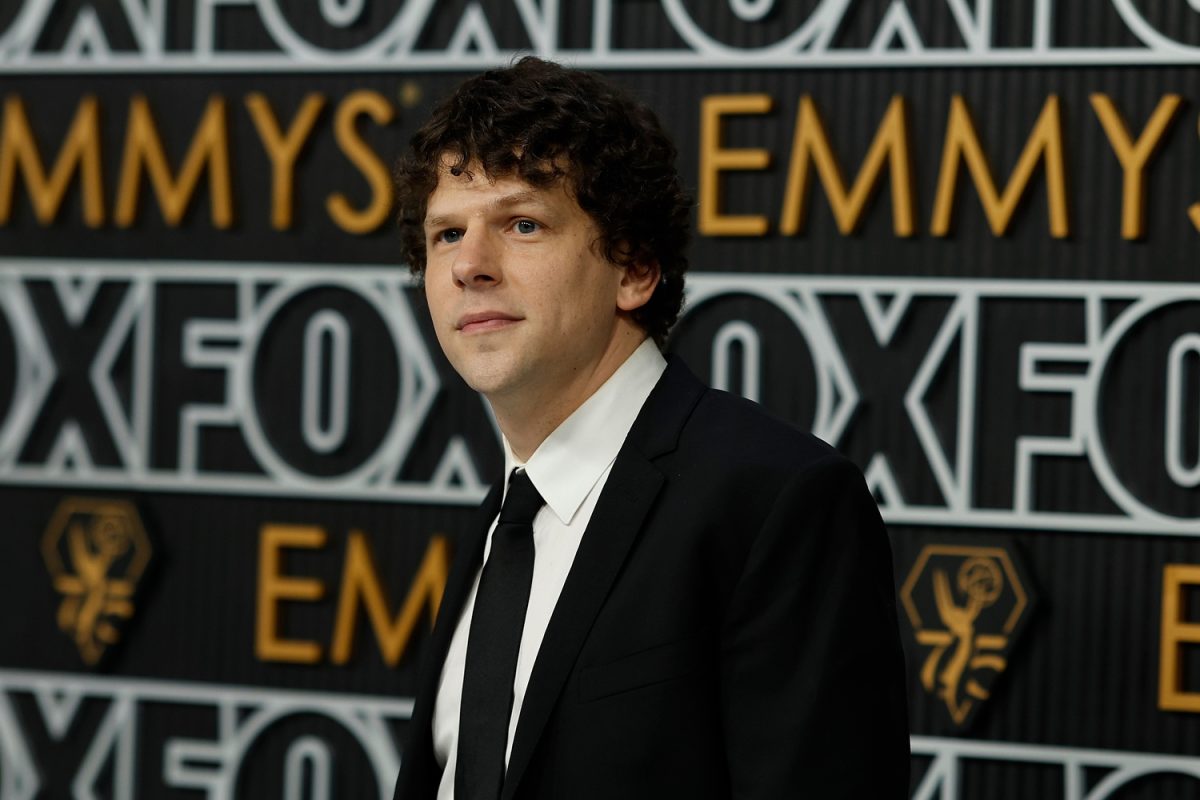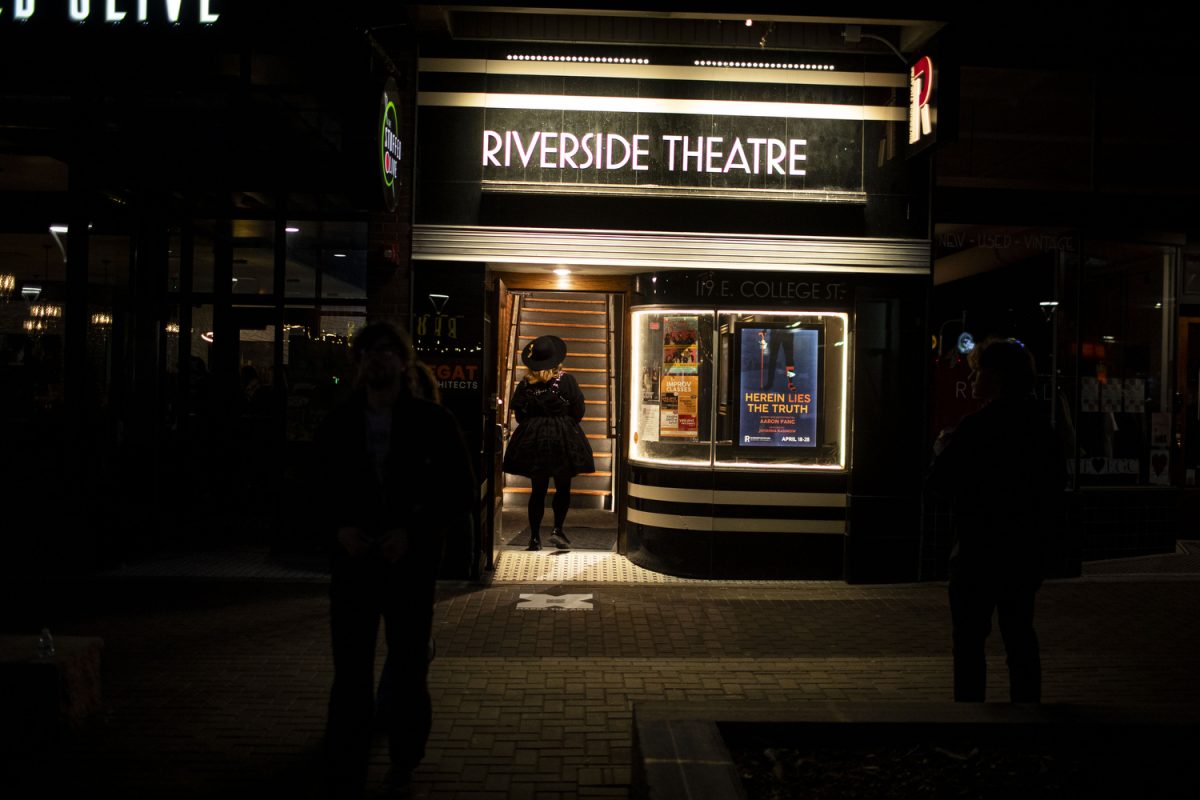When actor and vocalist Jason Currie came out, he said, it was more of a natural progression rather than a big declaration.
Raised in Atlanta, Currie attended a performing-arts high school, and his mother first approached him about his sexuality.
“I remember she asked me why on earth I wanted to sleep with a man, and then I asked her the same question, and she joked, saying, ‘I don’t. I haven’t slept with your father in 15 years,’ ” Currie said. “So my immediate family was very supportive.”
But there are many gay, lesbian, bisexual, and transgender youth in the country not so fortunate as Currie.
In 2011, the National School Climate Survey found 6 in 10 LGBT students reported feeling unsafe at school because of their sexual orientation and 4 in 10 said they felt unsafe because of their gender expression.
This weekend, the Gay Men’s Chorus of Los Angeles will come to Iowa City — considered by a national gay news magazine to be 2010’s third-most-gay-friendly community in the United States — to perform its first production of It Gets Better in a response to bullying of the GLBT community.
The performance, hosted by Hancher, will begin at 7:30 p.m. on Friday in the IMU Main Lounge. Admission is $10 for students and youth, $31.50 for seniors, and $35 for the general public.
Tod Macofsky, a colleague of Currie in the production, has been a part of the Gay Men’s Chorus of Los Angeles for almost 12 years.
The Los Angeles native wanted to be one of the six members in the production so he could support the gay youth, because he had a relatively easy coming-out experience.
“I just wanted to do something for all the kids who are suffering in small towns and don’t have the resources that I necessarily had,” Macofsky said.
In the show, the Los Angeles native plays a conservative Republican talk-show host who is closeted and afraid to come out, a complete 180 from what Macofsky describes as himself.
“I love being able to play a character who is completely not me,” he said. “It’s almost like an adult having a kid’s experience.”
In writing the production, Liesel Reinhart, the director of It Gets Better, wanted to include the experiences of her cast members into a larger fictional story that she describes as being almost like a fantasy.
“The show is funny, entertaining, and it makes people feel,” she said. “It’s very emotional but not depressing, and the response we have received so far was very energetic.”
The project seeks to improve conditions in a community rather than telling people things will get better. The cast will go into communities and encourage the members to make things better right now, so people don’t have to merely imagine a future.
“We are hoping we can learn what is working in Iowa and that your community is a model to give us new insights about these issues,” Reinhart said.
One way the project will include the community is through local Iowa choirs.
Audra King, the manger of the Quire, eastern Iowa’s LGBT choir, said this is a great opportunity to represent part of the Iowa City community for a wonderful cause.
“I think that we can all relate to the core of what is at this project,” she said. “We’ve all been in the situation where we’ve felt like we needed to find a way to get out, and we didn’t have anyone to call on.”
In addition to the local choirs, the project will showcase the University of Iowa’s version of an “It Gets Better” video, which was created last spring by students and faculty in the GLBT community.
The video follows the format of columnist and author Dan Savage’s YouTube video, which was created in 2010 to inspire hope for the GLBT youth who were facing harassment.
UI sophomore Jeno Singson had a more difficult coming-out process, but he wanted to participate in the video to help young GLBT students know that their lives will get better.
Singson didn’t come out until his first semester in college. He told one of his good friends he was gay, and the friend slowly started to stop talking to him until there was no communication at all.
But being a part of the GLBTAU organization on campus and being a resident assistant at Mayflower has provided a support system for Singson.
“Coming out is a really hard process, so I guess a word from the wise is always ask a person who just came out how they are doing, because I struggle with it every day,”
Singson said. “If you are a friend or an ally, just recognize that you have their support.”
UI senior Hanna Wright was asked last spring if she would be interested in sharing her story with other students, and she agreed.
“I think that anything that promotes the idea of its getting better is something that is really important,” she said. “It’s not always easy to put yourself out there, but I think if you can do that, then it’s a phenomenal message, and it creates a community and support system within it.”
During Wright’s sophomore year of high school, she started to date one of her really good friends, but she didn’t tell a lot of people about her relationship.
A few months in, the Illinois native’s parents sat her down and said they knew about her relationship and that she wasn’t allowed to see or talk to her friend again.
When Wright came to the UI, she believed it was her chance to start over. She talked to the LGBT Resource Center on campus, and the people there encouraged her to tell a close friend who ended up embracing her.
“I never got to come out to my parents; I was kind of called out by them,” she said. “But college gave me the ability to choose to come out to someone and be honest.”
While Wright’s sexuality is still the elephant in the room with her parents, she said, the important thing is to keep one’s head up and to be positive.
“Live the day, and no matter what, there is always someone out there who will support you and embrace you,” Wright said. “My hope is that it’s not just LGBT people telling others that it gets better, that it’s allies, too, standing together and showing everybody that all it boils down to is love.”






